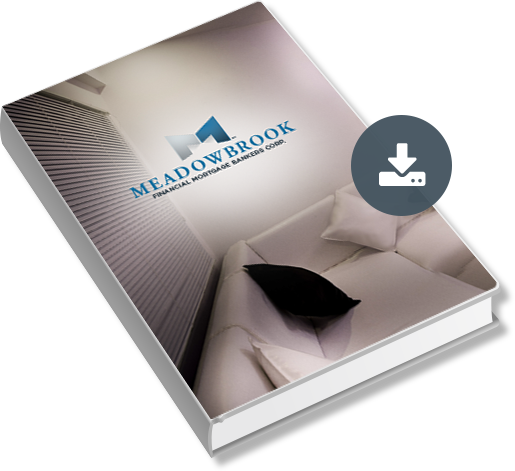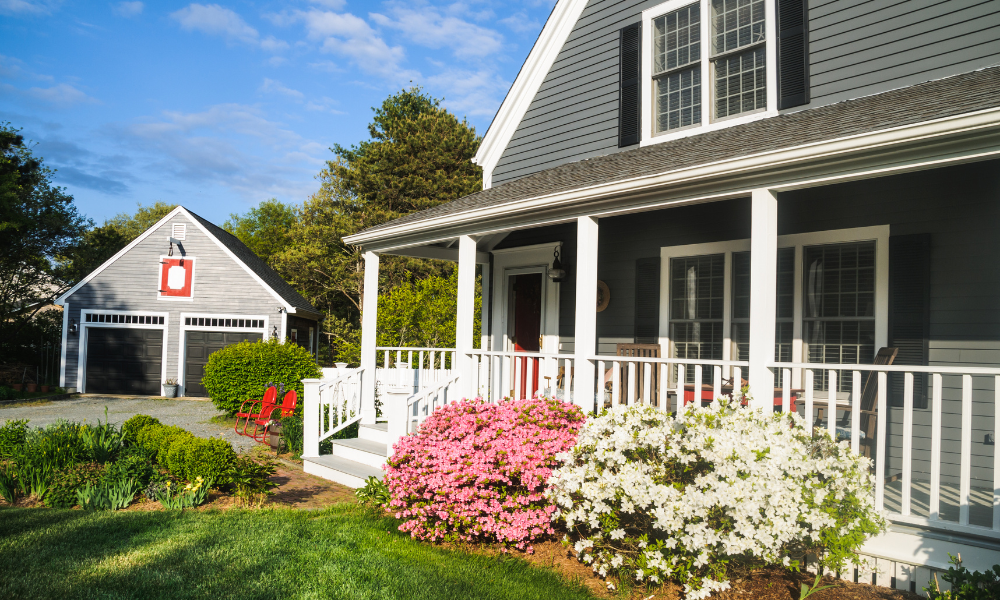Search Blog Posts by Blog Topic
Should You Get a Long- or Short-Term Mortgage?
January 16, 2024
One of the most important factors to consider when getting a mortgage is how long your mortgage term should be. This decision can have a significant bearing on your finances in the years that follow. There is no predefined best mortgage term length because this aspect varies based on individual requirements. As a result, you need to think about the specifics of your case to determine if a short- or long-term mortgage might work better for you.
What Is a Mortgage Term?
The term of a mortgage refers to the duration your lender gives you to repay the loan entirely. In, the U.S., the most common mortgage term is 30 years, and you also get to choose from 10, 15, 20, and 25 years. However, not all mortgage providers offer the same options. One of the key reasons this factor plays a vital role in getting a mortgage is that it can have a significant impact on the overall cost.
What Is a Short-Term Mortgage?
Short-term mortgages have terms ranging from 10 to 15 years. While it is possible to find mortgages with even shorter terms, it’s not easy. From a borrower’s point of view, short-term mortgages tend to come with lower interest rates and higher monthly payments than long-term mortgages. In addition, a short-term mortgage enables you to build equity in your house faster.
Looking to Purchase a Home on Long IslandContact Us
What Is a Long-Term Mortgage?
The duration of a long-term mortgage extends to 15 years or more. 30-year fixed-rate mortgages hold the largest market share in the country. The longer your loan term, the more time you get to repay the money you borrow, which translates to lower monthly payments. However, you end up paying more toward interest.
Usually, 15-year mortgages come with the most competitive interest rates. If you get a 30-year mortgage, you typically still have the option of paying off the entire money ahead of time without incurring a penalty.
While some lenders provide 35- and 40-year mortgages, they don’t fall under the conforming loan bracket. This means they don’t have to abide by the rules for conventional loans set by Fannie Mae and Freddie Mac.
Why Are Long-Term Mortgages Popular?
Long-term mortgages, especially with terms of 25 years and more, are becoming rather popular with first-time homebuyers, which is mainly because of the affordability factor. After all, rising property prices are making it increasingly difficult for borrowers to opt for short loan terms because they come with significantly higher monthly payments. A 30-year mortgage, when compared to a 15-year alternative, can lower monthly payments greatly, allowing a first-time buyer to move forward with buying a home.
Potential Drawbacks of Long-Term Mortgages
One disadvantage of getting a long-term mortgage is you’ll end up paying more in the form of interest. It also means you’ll have to keep making monthly payments for longer. For example, if you get a 30-year mortgage in 2025 and stick to making just the monthly payments, you’ll own your home outright by 2055. However, the prospect of needing to make monthly payments is not necessarily negative because you no longer pay rent and continue building equity in your home. Plus, it’s common for incomes to increase with time.

Is It Better to Have a Short or Long Mortgage?
The answer to, “Is a long- or short-term loan better?” depends on your circumstances, and it’s important to understand the key differences between the two. Given that you need to make payments toward a long-term mortgage over a prolonged period, it costs less per month when compared to a short-term mortgage. However, it also means that the overall cost of the mortgage will increase because you’ll need to pay interest charges over the long term too.
While a short-term loan increases your monthly payments, you get to pay off the entire balance sooner. This means you end up paying less interest.
Consider these examples to get an idea of the difference in interest charges based on your loan term. In both examples, the home price is $200,000 and you make a $40,000 down payment.
30-Year Fixed-Rate Mortgage
- Interest rate. 6.61%
- Monthly payment. $1,022.91
- Total of 360 Mortgage Payments. $368,248.01
- Total interest. $208,248.01
15-Year Fixed-Rate Mortgage
- Interest rate. 5.93%
- Monthly payment. $1,344.13
- Total of 180 Mortgage Payments. $241,942.95
- Total interest. $81,942.95
One way to determine which loan term might work best for you is to use an online mortgage calculator. You may view existing weekly averages of interest rates on the Freddie Mac website, which you can then use in your calculations. This will give you a clear indication of how your monthly payments will vary based on different loan terms, and you may choose one according to your affordability.
15- Or 30-Year Mortgage
While getting a 15-year loan term can save you a tidy sum of money in the long run, you need to make sure you can afford to make the higher monthly payments. If you feel you might face challenges, consider going with a 30-year mortgage. You may also want to consider when you would like to be mortgage-free. For example, if you wish to pay off your mortgage before you retire in the next 26 years, a 25-year loan term might be the way to go.
A 15-year loan term is ideal if you can make your monthly payments comfortably, with your budget having adequate room to meet your other financial obligations and expenses. It can also work well if you wish to build equity quickly, which you may then use to pursue other financial goals by getting a home equity loan, home equity line of credit, or cash-out refinance.
Older homebuyers who build enough equity in their homes by the time they are 62 years of age may even consider taking reverse mortgages in the future.
Looking to Purchase a Home on Long IslandContact Us
Is It Better to Get a Longer Mortgage and Overpay
Most lenders let you pay up to 20% of your loan balance every year without imposing any fees or penalties. If you prepay your mortgage or make extra payments, you can get the money you pay to apply to the loan’s principal amount and not the interest. By bringing down the principal amount, the amount you need to pay as interest reduces too. Some other benefits of making extra payments include:
- Build equity faster
- Pay off your mortgage sooner
- Bring down your debt-to-income ratio (this can help you qualify for lower interest rates on loans you take in the future)
Find Out About Prepayment Penalty
Before you decide to make extra payments toward your mortgage, find out if your lender charges a prepayment penalty. This penalty usually applies if you sell your home, refinance your mortgage, or make a substantially large payment. In addition, when applicable, prepayment penalties typically stay in place only for the first three years of a loan’s term. While some types of loans come with prepayment penalties, not all do. For example, it is illegal to charge prepayment penalties on VA loans issued to members of the military and single-family FHA loans.
How to Pay Off a 30-Year Mortgage Sooner?
More often than not, homeowners can pay off their 30-year mortgages early if they adhere to a few simple ground rules. For starters, you need to understand how mortgage payments work with regard to amortization. In simple terms, it refers to how a lender applies your payment toward the principal amount and the interest.
When you start repaying your mortgage, a major portion of your payments go toward interest charges and only a small percentage covers the principal. Toward the end of the loan term, given that you have already paid most of the interest, much of your payment covers the principal. To build equity, you need to bring down the principal amount. The sooner you do so, the quicker you get to build equity.
If you want to pay off your mortgage faster, these pointers might be of assistance. In the first three instances, you need to instruct your lender to apply the extra payment toward the principal and not the interest.
- Make larger monthly payments. If your budget permits, start making more than the required monthly payment. You may increase or decrease the extra amount at any time.
- Make extra one-time payments. If you cannot commit to making extra payments each month, you may make a lump sum payment of any amount at any time. This is a great option if you receive extra funds.
- Make biweekly payments. If you make a payment every two weeks instead of once a month, you end up making one full extra monthly payment each year.
- Opt for a mortgage recast. Recasting a mortgage involves making a substantial lump sum payment and then asking your lender to re-amortize your loan based on the reduced principal amount. However, not all mortgages allow recasting, and this is something you need to check with your lender. In this case, while the loan’s term and interest rate remain the same, you get to make lower monthly payments. You save in interest charges as well.

Should You Refinance a 30-Year Mortgage to a 15-Year Mortgage?
If you plan to refinance an existing 30-year mortgage to a 15-year mortgage, the first thing you need to consider is whether you will be able to keep up with the higher monthly payments over a period of time. Then, you need to look at the difference between the existing interest rate on your mortgage and the rate you qualify for on a new 15-year mortgage.
While a lower interest rate can lead to monetary savings, you also need to account for the expenses associated with getting a new mortgage, such as loan origination fees and closing costs. If you wish to refinance a mortgage within the first two to three years, you might need to account for a prepayment penalty too.
Since different variables can be at play when you refinance a mortgage, make sure you carry out your calculations in advance. If you don’t see yourself coming out on top, making extra payments toward your existing mortgage might be a better solution.
Are Adjustable Rate Mortgages Short-Term?
Adjustable rate mortgages (ARMs) are not short-term and they typically come with 30-year loan terms. Unlike a fixed-rate mortgage where your interest rate remains the same through the course of the loan term, an ARM comes with an interest rate that’s fixed for an initial period and then begins to change based on existing market conditions.
The initial period when the interest rate remains fixed is typically short-term and may vary from three to ten years. How often interest rates change after that depends on the specific type of ARM you get.
- 3/1 or 3/6 ARM. The interest rate remains fixed for the first three years and then changes once every year or six months.
- 5/1 or5/6 ARM. The interest rate stays the same for the first five years and then changes once every year or six months.
- 7/1 or7/6 ARM. There is no change in the interest rate during the first seven years, after which it revises every year or six months.
- 10/1 or10/6 ARM. In this case, the interest rate remains the same for the first 10 years and then changes every year or six months.
Conclusion
If your budget permits, a short-term mortgage can be a great way to buy a house and build equity quickly. Long-term mortgages, on the other hand, have given scores of Americans the ability to go the homeownership way because they come with more affordable monthly payments. Whether you should opt for a long- or short-term mortgage essentially boils down to your circumstances, and if you’re still unsure about which might work better for you, consider discussing your situation with a reliable mortgage provider.
Ready To Get Started?
Fill out the form below and a mortgage professional will get back to you shortly.

First Time Homebuyer’s Guide
Considering homeownership but not sure where to begin? The Meadowbrook Financial Mortgage Bankers Corp. guide to home buying will make the process easy all in one packet.
Recent Articles

Should You Buy an Under-Construction, New Build, or…
18 June, 2025The dream of owning a home often comes with having to make an array of decisions, and perhaps none is more crucial than choosing the…

How Do Pets Influence Homebuying?
1 May, 2025Adding a furry friend to your family can bring so much joy to your life. Whether it’s a dog, cat, bunny, or other, they’re sure…

Tips to Speed Up Closing on a House
1 April, 2025When you find your dream home, you want your next chapter to begin as soon as possible! Closing on a house is certainly a process…


